by Taif Alkhudary
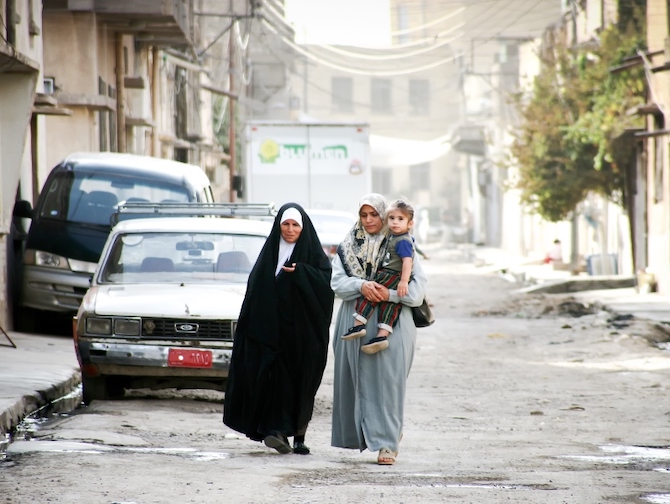
Iraqi women and girls have played an integral part in the demonstrations that have gripped Iraq since October 2019, taking to the streets en masse to call for gender equality, as well as protest against the broader social, political and economic conditions which continue to enable and justify patriarchal violence in the country. In so doing, they are subverting heteronormative gender roles based on domesticity and submission and reasserting their presence in the public sphere, drawing inspiration from and building on the long history of Iraqi women’s rights movements.
While many have dubbed the participation of women and girls in what has come to be known as ‘Iraq’s October Revolution’ a watershed moment in the fight for gender equality in the country, legislative change continues to move slowly. Many Iraqi laws still do not comply with the Convention on the Elimination of All Forms of Discrimination Against Women (CEDAW), which Iraq ratified in 1986. Those laws which are in line with the CEDAW are often not implemented properly. Furthermore, women and girl survivors of gender based violence (GBV) continue to face innumerable obstacles in gaining access to justice.
The reasons for legal discrimination and patriarchal violence against women and girls in Iraq are manifold. They can be broadly divided into three categories: the persistence of patriarchal norms, the nature of the Iraqi legal system and the weakness of state institutions.
Patriarchal Norms
Among the key laws which discriminate against women and girls in Iraq is the Penal Code. Article 41(1) stipulates that ‘no crime is committed while exercising a legal right’, including the ‘punishment of a wife by her husband’. Article 128 lists a number of reasons that either result in the reduction or dismissal of a penalty, among them offences committed ‘with honourable motives’. Article 398 of the Penal Code exempts an offender who has committed sexual assault from prosecution if they marry their victim. The Iraqi Penal Code, therefore, encourages violence against women and girls, allows perpetrators to act with impunity and leaves women and girl survivors of GBV without any legal protections.
The aforementioned Penal Code provisions are predicated on the assumption that men are entitled to discipline women and girls if they do not conform to the social roles attributed to them. These norms see women and girls as mothers or daughters, who serve and are dependent on the male members of their family. In addition, they safeguard family honour and dignity through their untarnished ‘reputations’, linked to modesty and ‘virginity’. The dominant social roles attributed to women and girls in Iraq have been entrenched and justified through decades of social, political and economic instability.
The social roles attributed to women and girls also deter them from seeking employment opportunities. Thus, for example, a 2019 report by the Iraqi Women’s Network found that in 2017 only 3.9 percent of judges and 18 percent of public prosecutors were women. When combined with societal pressures, the weakness of the legal system and mistrust of the police and authorities, such disparities mean that incidences of GBV are seriously underreported in Iraq. This reluctance to report is compounded by the lack of state-run shelters for survivors of GBV and the fact that those run by NGOs must constantly relocate to ensure the safety of staff and residents, leaving women and girls with nowhere to go.
In order to avoid bringing ‘shame’ to their families, women and girls are often pressured to bring cases of GBV to alternative dispute resolution mechanisms. These are based on tribal and religious norms and focus on community cohesion and family reputation, rather than the rights of survivors. They are staffed by prominent men from the survivors’ community and perpetuate stereotypes about men as figures of authority and women as subservient. In turn, this means that defendants go into negotiations with much more power than their victims, denying the latter an equal opportunity to argue their case and thus rendering proceedings inherently unfair.
Legal System
Overlaps and contradictions in the Iraqi legal framework enable further discrimination against women and girls. For example, article 41 of the Constitution stipulates that ‘Iraqis are free in their commitment to their personal status according to their sects, beliefs or choices’. In this way, it allows for the adoption of different interpretations of personal status depending on religious beliefs, therefore denying women equal rights in marriage and permitting early forced marriage. In contrast, article 7(1) of Iraq’s Personal Status Law stipulates that marriage can only take place if both parties are at least 18 years old. However, article 8 of that very same law allows for the marriage of girls as young as 15 if this is authorised by a judge. Such contradictions not only mean that Iraqi citizens do not know how to act in order to be in compliance with the law, but also, crucially, give leeway to patriarchal interpretations of laws resulting in violations of women’s and girls’ rights.
The institutionalisation of religion within the Iraqi legal system, also allows powerful conservative groups to interpret laws in ways that suit their interests, imposing legal discrimination against women and girls with the weight of both the state and religious authorities behind them. This is most starkly demonstrated by the Iraqi Domestic Violence Law. The law not only fails to fully comply with the CEDAW, but has also been rejected by the Council of Representatives on at least three occasions since 2011 on account of objections by the Parliamentary Committee on Religious Endowments. Such legitimation means that the interpreters themselves, along with their patriarchal interpretations, hold greater authority and are less likely to be challenged.
State Institutions
Furthermore, political parties routinely engage in trade-offs between legislation that is conducive to the realisation of women’s and girls’ rights for increased electoral appeal and parliamentary and cabinet seats during post-election negotiations. When such laws are adopted, as was the case with the Kurdish Domestic Violence Law, more often than not there is a failure to make the financial, technical and human investments necessary for their full implementation. This is partly the result of a lack of political will and partly due to entrenched state corruption, which sees Iraqi citizens systematically defrauded of public money and incompetent staff appointed to vital positions in parliament, the civil service, police and judiciary through nepotism, bribery or on account of party affiliations.
Examining the reasons behind the persistence of legal discrimination and patriarchal violence against women and girls in Iraq presents an opportunity for thinking through possible solutions to strengthening the rule of law in the country. The societal shifts sparked by the protest movement make this a particularly opportune moment to do so. In turn, this will work to support the social change that the women and girls who have taken to the streets across Iraq for the past nine months have been fighting for.
This blogpost introduces the Conflict Research Programme–Iraq’s project ‘Patriarchal Norms and Legal Discrimination Against Women and Girls in Iraq‘, led by Principal Investigator Taif Alkhudary.



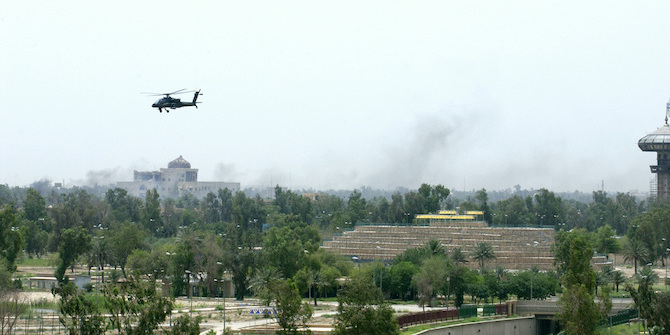
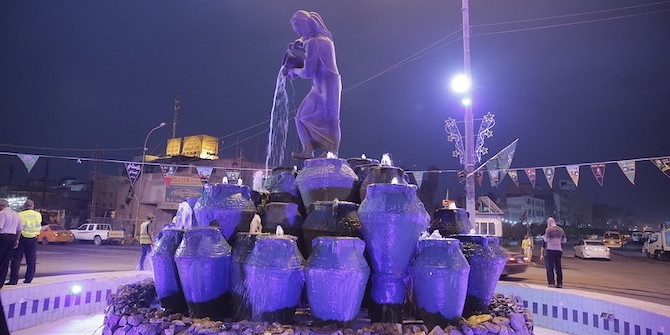
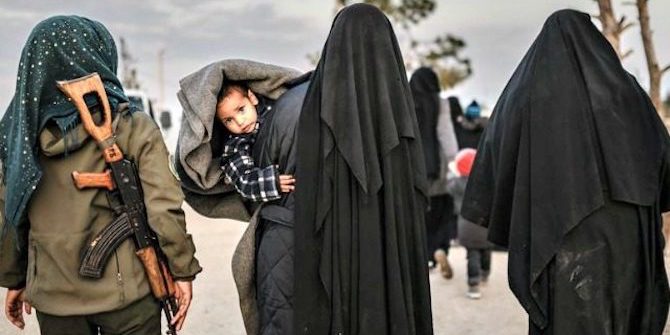
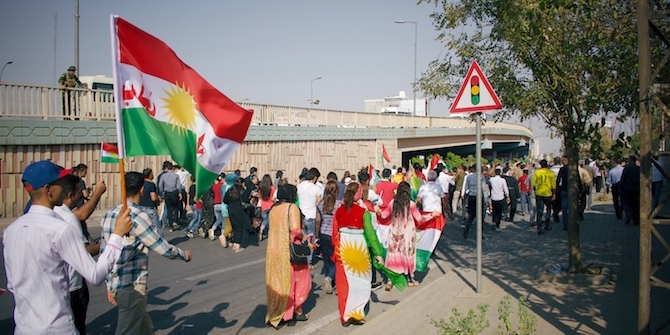
This blog is very interesting
Again, if you don’t have a lawyer, make sure you find a lawyer immediately!
https://www.mishoura.com
Pingback: Iraqi Women are Engaged in a Struggle for their Rights | The New York Press News Agency
Pregnant women’s rights at work
https://www.qredible.co.uk/b/pregnant-womens-rights-at-work/
#UK #solicitor #qredible